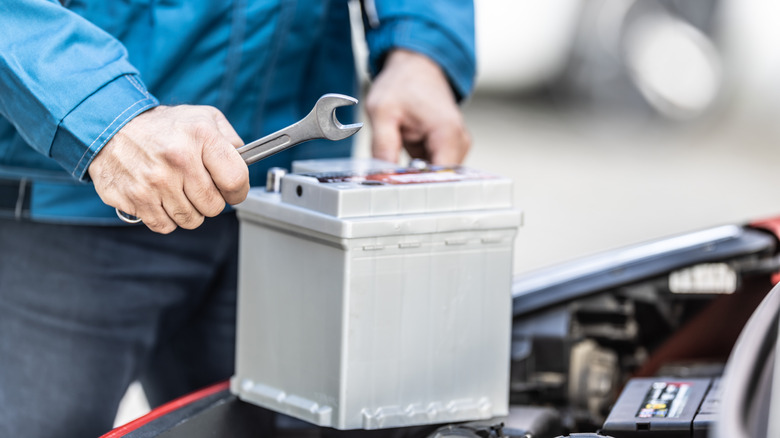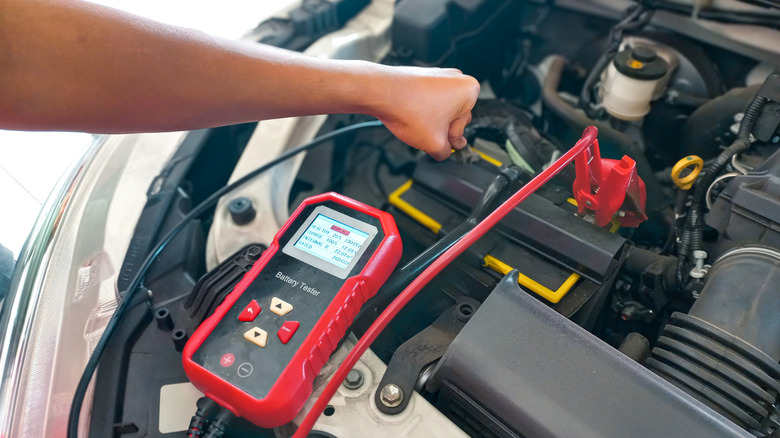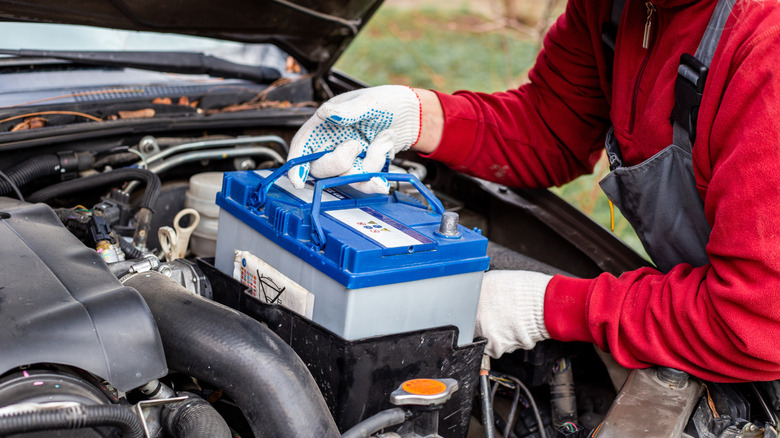Do New Car Batteries Need To Be Charged? Here's What You Need To Know
You might think a brand-new car battery would be good to go the moment it's installed. However, the reality is different — not all new car batteries come fully charged. Many do, but it's not a guarantee. Some may sit for weeks in storage, on shelves, or even inside unsold cars at dealerships, gradually losing their charge before they ever turn an engine. That's why it's smart to ask questions instead of assuming everything's set.
Battery charge levels can drain, even before it is sold. Whether the battery was shipped by train, boat, or truck, the long journey plus exposure to extreme temperatures can slowly eat away at its charge. Plus, even while parked, modern vehicles draw a small amount of power from the battery to keep internal electronics alive. Over time, this small drain adds up, and if that car sat on the lot for a while, the battery may not be as fresh as you'd expect.
Why some new batteries aren't fully charged
Car batteries lose charge naturally over time, even when they're not being used. This is called self-discharge, and it's completely normal. Battery type plays a big role too. Lithium-ion batteries hold their charge better than traditional lead-acid ones. But most cars still come with lead-acid or enhanced flooded batteries (EFB), which can discharge faster, especially in extreme heat or cold. If a car sits too long without being driven, that slow drain can turn into a real issue.
There are also two kinds of new car batteries: charged and filled (ready to use), and dry-charged (unfilled). Dry-charged batteries need to be filled with electrolyte before they can work, but they last longer on the shelf. Once you fill a dry battery, it needs to be used or kept topped up every month. Some dealers may forget to test or charge these batteries before handing over the keys, so it's a good idea to ask for a battery test before delivery. A quick check can save you from a dead battery just days after buying a new car.
What you can do to avoid battery trouble
If your new car doesn't start as easily as expected, the battery is probably to blame. A reading below 12 volts on a multimeter may even suggest a fault. In some cases, a weak or drained battery in a new car is a sign you need a battery replacement, especially if it's been sitting too long or showing signs of a defect. That's why it's always smart to check the battery's condition early, before it leaves you stranded unexpectedly.
If you're dealing with a battery that needs a top-up, an automatic charger is your best friend. It's easy to use and prevents overcharging. Just make sure you're using the correct voltage setting (usually 12V) and matching the charge current to your battery's amp-hour rating. For fully drained batteries, a manual charger might be needed, but that takes a bit more care. With the right setup, you can make sure your new battery starts strong and stays healthy from day one.


